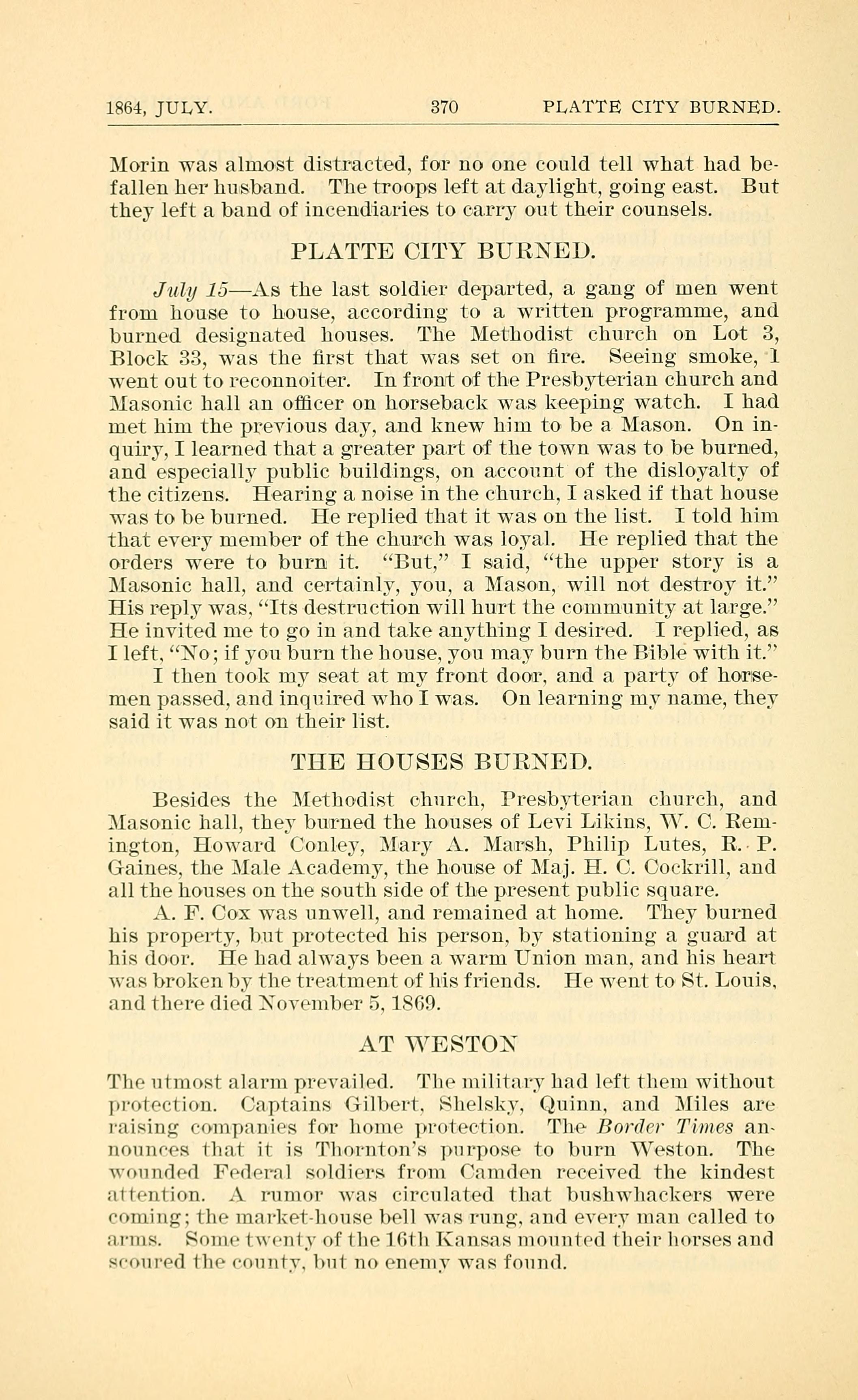Annals of Platte County, Missouri - Paxton
[previous page] [next page]

[previous page] [next page]
1864, JULY. 370 PLATTE CITY BURNED. Morin was almost distracted, for no one could tell What had be- fallen her husband. The troops left at daylight, going east. But they left a band of incendiaries to carry out their counsels. PLATTE CITY BURNED. July 15 the last soldier departed, a gang of men went from house to house, according to a written programme, and burned designated houses. The Methodist church on Lot 3, Block 33, was the first that was set on re. Seeing smoke, I went out to reconnoiter. In front of the Presbyterian church and Masonic hall an ofcer on horseback was keeping watch. I had met him the previous day, and knew him to be a Mason. On in- quiry, I learned that a greater pa.rt of the town was to be burned, and especially public buildings, on account of the disloyalty of the citizens. Hearing a noise in the church, I asked if that house was to be burned. He replied that it was on the list. I told him that every member of the church was loya.l. He replied that the orders were to burn it. But, I said, the upper story is a Masonic hall, a.nd certainly, you, a Mason, will no-t destroy it. His reply was, Its destruction will hurt the community at large. He invited me to go in and take anything I desired. I replied, as I left. No; if you burn the house, you may burn the Bible With it." I then took my seat at my front door. and a party of horse- men passed, and inquired who I was. On learning my name, they said it was not on their list. THE HOUSES BURNED. Besides the Methodist church, Presbyterian church, and Masonic hall, they burned the houses of Levi Likins, W. C. Remington, Howard Conley, Mary A. Marsh, Philip Lutes, R. P. Gaines, the Male Academy, the house of Maj. H. C. Cockrill, and all the houses on the south side of the present public square. A. F. Cox was unwell, and remained at home. They burned his property, but protected his person, by stationing a guard at his door. He had always been a warm Union man, and his heart was broken by the treatment of his friends. He went to St. Louis, and there died November 1869. AT WESTON The utmost alarm prevailed. The military had left them without protection. Captains Gilbert, Shelsky, Quinn, and Miles are raising companies for home protection. The Border Times an- nounces that it is Thornton's purpose to burn Weston. The wounded Federal soldiers from Camden received the kindest attention. A rumor was circulated that bushwhackers sere coming; the market-house bell was rung, and every man called to arms. Some twenty of the 16th Kansas mounted their horses and scoured the county, but no enemy was found.